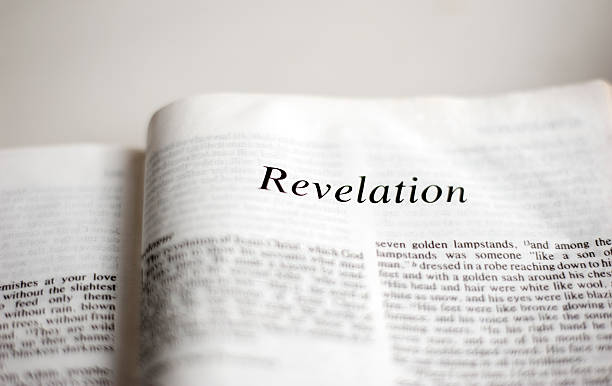Prophecies are a great way to add a sense of mystery and foreshadowing to your story. They’re entertaining to read about and solve, and there’s always that moment when you realize, “Oh, that was so apparent!” towards the conclusion of the story.
A prophecy can be made in real-time by a character or found in a book, glass bottle, or another object. The point is that a future prediction is made. Prophecies in fiction have a funny way of influencing characters’ actions and reactions, whether they pretend they care or not.
What’s the best way to get there, though? It’s just as challenging to write about prophecies as it is to decipher them. On both sides, it’s a difficulty, and while this isn’t an excellent guide, we hope it can assist you. We’re here to show you how to write a prophecy. Also, we have included some frequent examples and pitfalls to avoid. Let’s get this started!
What is a Prophecy?
Before we get to writing a prophecy let us teach you what a prophecy is in the first place. Prophecy is the supernatural capacity bestowed by the Holy Spirit to hear God speak and then communicate the message conveyed in that voice. We believe that without the Spirit’s function, you cannot prophecy. If you are not prophesying from God, you are not foretelling from the correct source.
The contrast between psychics and prophets is the source of their revelation in the Kingdom of God. Our primary source of energy is the Holy Spirit. Prophecy in the Bible is the act of pronouncing God’s words inspired by the Holy Spirit.
The Pygmalion effect
Higher expectations lead to better outcomes, according to the Pygmalion effect. Pygmalion is a fabled Greek character who fell in love with a statue that he had sculpted himself. Scientists are beginning to understand how this effect works in the body.
They hypothesized that because teachers believed their pupils were brilliant or would perform well, they would be more concerned about their learning, more attentive, and even in a more good mood around them.
Prophecy in pop culture
Prophecies are so ubiquitous that they appear in literature, cinema, and other forms of popular culture. One of the most well-known examples of prophecy is the Greek legend of Oedipus. Laius left his son Oedipus to die after being informed that he would kill him.
Oedipus was reared by foster parents and was also forewarned that he would murder his father and marry his mother when he grew up. Oedipus left his foster parents and entered the city, fearful that this prophecy might come true.
Types Of Self-Fulfilling Prophecies
Have you ever overheard somebody predict your life, only to be startled when it comes true? Another-imposed, self-fulfilling prophecy is one sort of self-fulfilling prophecy. Self-imposed self-fulfilling prophecy is the second sort of self-fulfilling prophecy. It includes one’s predictions for the future.
Other-imposed
Assume that Jamie, a student, is about to take a college entrance exam. She has spent a significant amount of time studying for the exam. Jamie receives a call from her father as she enters the building to take the test.
Her father informs her that she has always struggled with test anxiety and shouldn’t be shocked if she doesn’t do well. Jamie’s heart is racing as she sits down to take the test. She is unable to think and is aware that she is running out of time. She has a hard time passing the exam.
When she receives her grade, it is lower than she anticipated. This is an example of a self-fulfilling prophecy imposed by someone else. Jamie’s father predicted that her nervousness would get in the way of her success, and his prediction came true.
Self-imposed
The cause of one’s behavior in a self-imposed prophecy is one’s expectations. A scenario of public speaking is used as an example. In this situation, a man named John had failed in the past regarding public speaking.
He is terrified, and he knows he will fail. As a result, he stumbles over his words, forgets his lines, and fails to deliver a coherent message as he begins his speech. As a result of his belief that he would fail, John did.
Common Examples of Prophecy
Stock market fluctuations
When a stock’s price is expected to rise or fall, investors frequently react by selling if the price is expected to fall or purchasing if the price is expected to rise. As a result of this behavior, the stock price changes as expected. However, the stock would not have changed as much if you had not made that prognosis.
Placebo effect
When people take medicine to improve their health, whether or not the drug is helpful, their health often improves. This self-fulfilling prophecy illustrates both the strength of belief and the challenges of developing more effective treatments than placebos.
Belief in one’s intelligence
Many studies have shown that a person’s conviction in their abilities impacts outcomes more than the talents themselves. For example, if someone believes he is not strong in a particular academic subject, he may not study as diligently as he believes it will not benefit him. Then, when he fails the test, he will not be surprised, but he may have had a different outcome if a different belief system had been in place from the start.
Voting
Some people believe that a candidate’s views and platform are admirable but that they are unelectable. As a result, citizens are less likely to vote for that candidate, resulting in the candidate’s defeat.
How To Write a Prophecy
Writing
By including a prophecy in your story, you can impart a sense of destiny to the characters and events. However, numerous complications may occur, such as the unbeatable chosen one. How to write a prophecy all the while avoiding these difficulties?
There are plenty of excellent examples of prophecies being utilized in fiction. They can serve as predetermined laws for the future, rumors regarding specific components, or as hints and puzzles for the readers. At the same time, you can write your story any way you like, and there are some standards and other factors to consider when writing the prophecy.
Reason for the Prophecy
Before we go into the drafting of the prophecy, let’s discuss why you’re adding a prophecy in the first place. Is one required? Writing a prophecy might introduce numerous plot holes and other complications to your work.
Additionally, it is sometimes overdone in fantasy. That is not to suggest you cannot include a prophecy; however, if you do, evaluate why you are including it and do it thoroughly.
In-world consistency
Additionally, analyze whether or not the prophecy makes sense in your world. For instance, in my world, Eledris, there are few accurate prophecies. This is because my magical system forbids any manipulation of time, including the ability to see into the future. People continue to make predictions, yet no one truly knows what will happen.
The same is true for your universe; make the rules you’ve imposed on yourself even allow for the existence of accurate prophecy? If that is the case, fantastic! Consider how it came to be, and work with the data.
If not, you may still incorporate a prophecy, but with caution. Individuals will continue to attempt to forecast the future. Consider our world. Although there is no clear evidence of any magic occurring on Earth, predictions continue to appear. Consider some historical prophesies and draw inspiration from them.
Phrasing of the Prophecy
Generally, you want to write the entire story first, creating a placeholder for the prophecy and then framing the prophecy around the events throughout and after the story. After that, you can return and incorporate some hints throughout the plot.
The prophecy should resemble a perplexing but solvable problem rather than a cryptic riddle. Occasionally, it’s appropriate to phrase the prophecy poetically. However, in such a case, consider why they phrased it that way.
If the prophecy is well-known and handed from mouth to mouth, the lyrical style is frequently lost over time, distorting the prophecy into a more straightforward form. If the prophecy is discovered in an ancient, long-forgotten book, its original form will be preserved, as there was no time for corruption.
Impact on the story
Now that your prophecy has been written let us evaluate its actual impact on the globe. Who is aware of it? What significance does it have? Does it affect the characters in your stories? If so, are they attempting to prevent the fulfillment of the prophecy, or are they attempting to support it? Why? Consider how prophecy is transmitted.
Is it through word of mouth? Perhaps it is featured in an antique painting series. Alternatively, it could be a tale inscribed upon a temple wall. Who is the author of the prophecy? Why did they do it, and how did they do it?
Is it necessary for the prophecy to come true, or is it more of a warning, a forewarning? Pose as many questions as possible and attempt to decipher whatever there is to decipher about your newly-written prophecy.
Things To Avoid While Writing a Prophecy
Although we have covered how to write a prophecy we are not quite done. Here are a few pointers to be avoided while penning down prophecies.
Using it as a matter of course
Prophecy should play a significant role in your plot and world. Utilizing a meaningless prophecy or employing one only because you believe you should because you’re writing fantasy is a surefire technique to get eye rolls. As with any trope, if you cram it into your work carelessly, you’re doing both the trope and yourself a disservice.
Everything you incorporate in your novel should serve as a catalyst, adding depth to your conflict or characters. It would be best if you made no inclusion casually. Make sure that if you include a prophecy, you utilize it to its fullest extent.
Making It Too Simple
If you do it correctly, your prophecy will play a significant role in your story. And if it’s critical, you’ll want it to be highly intriguing. If you’re looking for a mundane, run-of-the-mill Chosen If one prophecy is, paradoxically, the linchpin of your novel, you’re sure to receive some eye rolls and, worse, readers who put your book down.
Going for too much
On the other hand, complicated predictions that require a ten-page backstory to contextualize will likely divert too much attention away from your actual plot. Prophecies are frequently focused on a single occurrence. It can cover several sides of one single occurrence but attempting to detail too many risks detracting from the present moment or going in over your head.
Change your beliefs
You are the one who breaks or builds your ego. Break free from previous mindsets and reconsider your self-perception. Substitute objectively more correct expectations for negative self-talk and disturbing mental images. Practice positive self-talk and be confident in yourself and your abilities.
Work on your self-esteem
We may have lower standards than what is realistic when we have low self-esteem. It may seem absurd to suppose that we can pass a test if we believe we will fail, but this is precisely why we must change our mindset. Instead of focusing on your current expectations, focus on who you want to be and what you want to do.
What Impact May Self-Fulfilling Prophecy Have On Your Life
Self-fulfilling prophecy, as previously stated, is mainly subconscious, but being conscious of some of the instances in which it can manifest itself will aid in spotting these patterns in your life.
You can change this automatic thought process into attentive awareness of how your ideas influence your circumstances by knowing where and how self-fulfilling prophecy happens (and influence other people).
Dating and relationships
When we make assumptions about someone we’re about to meet, we act in ways that confirm our assumptions. If a buddy sets you up on a blind date and tells you that the person you meet is exceptional, you’ll be on your best behavior to amaze and dazzle them back, making that person shine because you’re fully involved and interested in them. Your positive attitude toward this person attracts additional positive energy, which is returned to you.
Career
There’s a lot on the line in your working life since most of us want to work to make ends meet. On the other hand, self-fulfilling prophecies can mean the distinction between crushing your career and being crushed by it.
Let’s say you have a job interview coming up, and you assure yourself you’ll ace it. You do your homework on the company, look up the individual you’ll be meeting with, prepare questions, choose a nice outfit—the works. You may boldly introduce yourself when the time comes, creating the impression that you’re more than capable.
However, if you convince yourself that you aren’t qualified—and hence fall victim to impostor syndrome—you may get too scared to prepare appropriately. Thoughts will distract you, telling you that it’s pointless to try because you will not get the job anyway.
Friendships
Our friendships may shift and evolve as we mature. The narratives we tell ourselves about our connections have a significant impact on them. For example, your best friend is getting married, and you’re scared that because she now has her spouse as her best friend and confidant, you won’t be a priority in her life.
If you think your friendship can endure this new chapter in her life, you should check in with her more frequently and show genuine interest in her wedding plans, new home, and husband.
Conclusion
Overall, prophecy writing is a difficult task. You must decipher the prophecy’s true meaning, consider what will happen in the story, and maintain consistency within your universe. It’s also crucial to get the phrase right should the reader lose interest in the prophecy’s significance.
Last but not least, you must consider the effect your prophecy will have on the unfolding stories in your universe. We now hope that we have supplied you with sufficient information and understand how to write a prophecy.
In the end, it’s a character’s personality, difficulties, and decisions that make them intriguing, relatable, and lovable, not their abilities. Keep this in mind, and your chosen one will be destined to be the hero of an incredible story!



